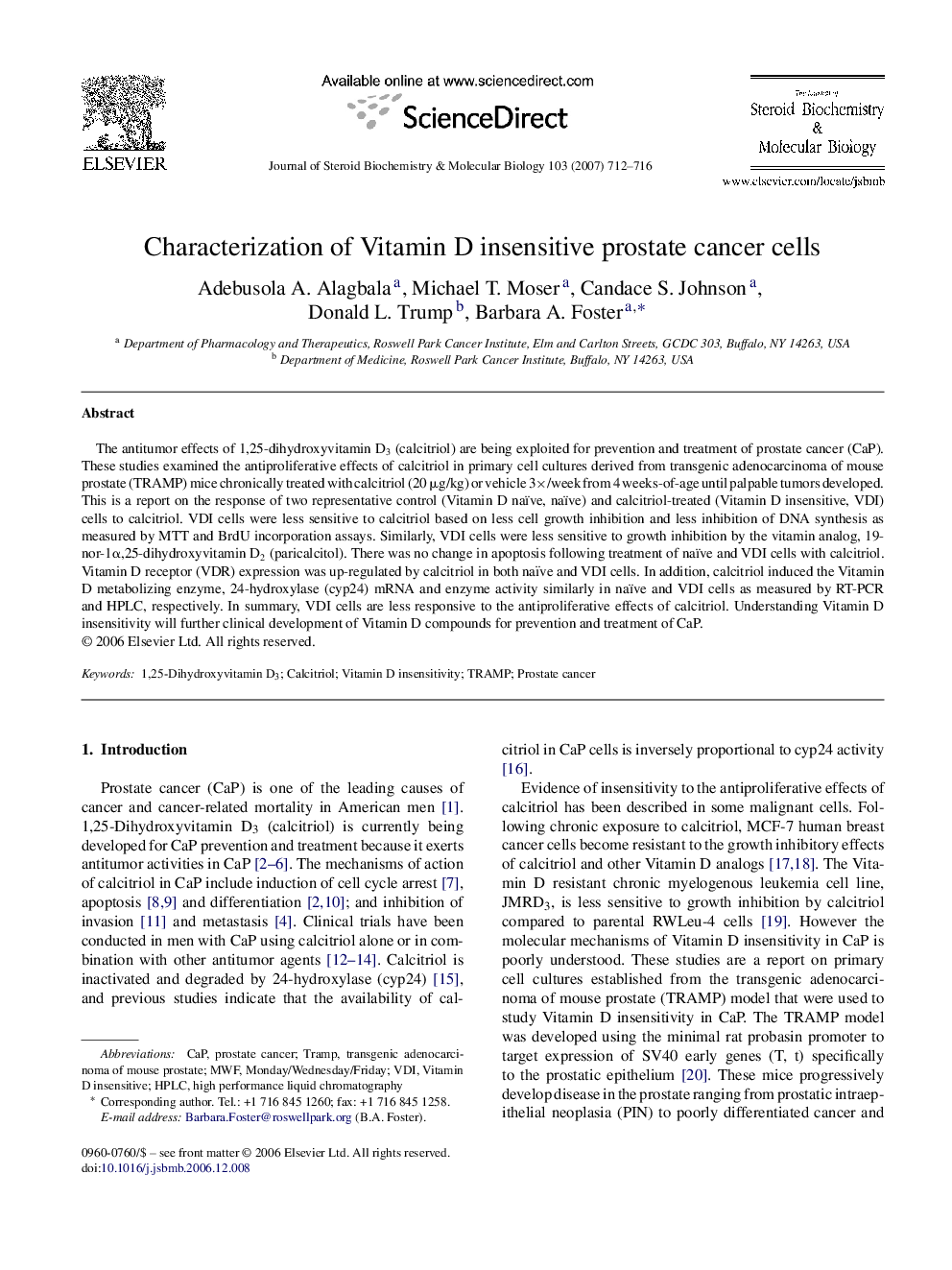| کد مقاله | کد نشریه | سال انتشار | مقاله انگلیسی | نسخه تمام متن |
|---|---|---|---|---|
| 1992613 | 1541078 | 2007 | 5 صفحه PDF | دانلود رایگان |

The antitumor effects of 1,25-dihydroxyvitamin D3 (calcitriol) are being exploited for prevention and treatment of prostate cancer (CaP). These studies examined the antiproliferative effects of calcitriol in primary cell cultures derived from transgenic adenocarcinoma of mouse prostate (TRAMP) mice chronically treated with calcitriol (20 μg/kg) or vehicle 3×/week from 4 weeks-of-age until palpable tumors developed. This is a report on the response of two representative control (Vitamin D naïve, naïve) and calcitriol-treated (Vitamin D insensitive, VDI) cells to calcitriol. VDI cells were less sensitive to calcitriol based on less cell growth inhibition and less inhibition of DNA synthesis as measured by MTT and BrdU incorporation assays. Similarly, VDI cells were less sensitive to growth inhibition by the vitamin analog, 19-nor-1α,25-dihydroxyvitamin D2 (paricalcitol). There was no change in apoptosis following treatment of naïve and VDI cells with calcitriol. Vitamin D receptor (VDR) expression was up-regulated by calcitriol in both naïve and VDI cells. In addition, calcitriol induced the Vitamin D metabolizing enzyme, 24-hydroxylase (cyp24) mRNA and enzyme activity similarly in naïve and VDI cells as measured by RT-PCR and HPLC, respectively. In summary, VDI cells are less responsive to the antiproliferative effects of calcitriol. Understanding Vitamin D insensitivity will further clinical development of Vitamin D compounds for prevention and treatment of CaP.
Journal: The Journal of Steroid Biochemistry and Molecular Biology - Volume 103, Issues 3–5, March 2007, Pages 712–716